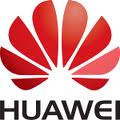 “Making innovative breakthroughs in fundamental technology is key to building a solid foundation for the long-term, sustainable development of global technology enterprises,” said Guo Ping, Rotating CEO and Deputy Chairman of Huawei, was speaking at the 2013 Fortune Global Forum in Chengdu, China.
“Making innovative breakthroughs in fundamental technology is key to building a solid foundation for the long-term, sustainable development of global technology enterprises,” said Guo Ping, Rotating CEO and Deputy Chairman of Huawei, was speaking at the 2013 Fortune Global Forum in Chengdu, China.
Mr. Guo shared these insights with hundreds of CEOs, business leaders, entrepreneurs and thought-leaders from around the world in a panel discussion entitled “Technology, Innovation and the Emerging World”, where panelists shared their views on how global technology providers are changing the emerging world and how the emerging world is influencing technology development and innovation.
In relating Huawei’s experience to the theme of “Tech for the Bottom of the Pyramid”, Mr. Guo said: “Huawei’s business started in emerging markets and it is our commitment to innovation and entrepreneurship that has allowed us to take our success globally. In our experience, we have learnt that the fundamental technology – including complex mathematics and algorithms – is the most important component of a global technology enterprise’s long-term sustainable development and yet, it is often overlooked.”
For example, through the innovative use of mathematical algorithms, Huawei created the industry’s first SingleRAN technology, which dramatically consolidates and simplifies 2G, 3G and 4G mobile network equipment by enabling telecommunications operators to upgrade to next- generation technology with minimal hardware changes. In many ways, the innovation behind SingleRAN technology led to Huawei’s emergence as one of the leading wireless infrastructure providers globally.
Multinational companies need to build core competencies and develop a strong foundation for innovation, while integrating talent and resources globally in order to fully leverage its business potential globally. Specifically, Mr. Guo remarked that regardless of the location of a company’s headquarters, companies have an important role to play in conducting and driving innovation globally.
Mr. Guo also commented on the importance of protecting intellectual property rights (IPR). “Only when we protect IPR can we spur technology investment and reap the benefits that a greater level of innovation brings.”
As part of the discussion on the topic of “Lessons from the Original ‘Mobile First’ World”, Mr. Guo responded: “When we think about ‘mobile first’, the idea that immediately comes to mind is the current trend of innovative devices, smart handsets and powerful applications that are changing people’s lifestyles and bridging the digital divide. But, for instance, if you think of devices as “water faucets” then equally important are the “pipes” or communications infrastructure that carries information and delivers it to the water faucets.”
The mobile ecosystem consists of devices, networks and applications. While Mr. Guo acknowledged that the consumer mainly sees the application of “mobile only” or “mobile first” in their daily lives, he highlighted that over 70 percent of data is actually transmitted through Wi-Fi technology – a type of fixed network – and not through wireless mobile networks. Huawei expects this trend to continue in the future and that as a result, mobile and fixed networks will continue to play complementary roles in the ICT ecosystem.
In his closing remarks, Mr. Guo said:” In the ICT sector we envision a world of ubiquitous connections – zero wait time, ultra broadband and smart applications. This presents many opportunities and challenges in terms of achieving breakthroughs in technology and business models in order for that vision to become a reality. Companies like Huawei can only strengthen our competitiveness and realize our ICT vision through a continued dedication to innovation that fosters a healthy mobile ecosystem.”





